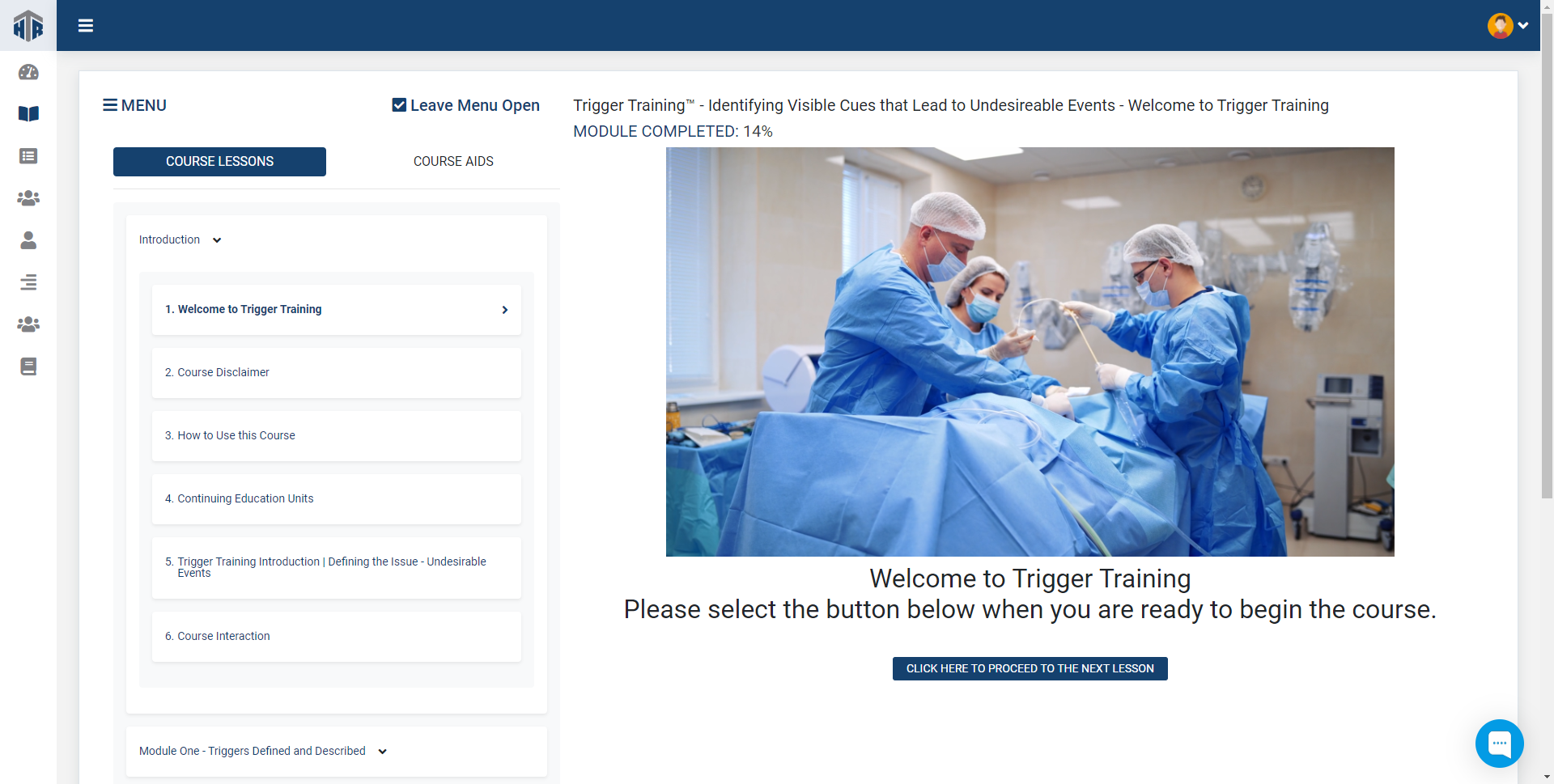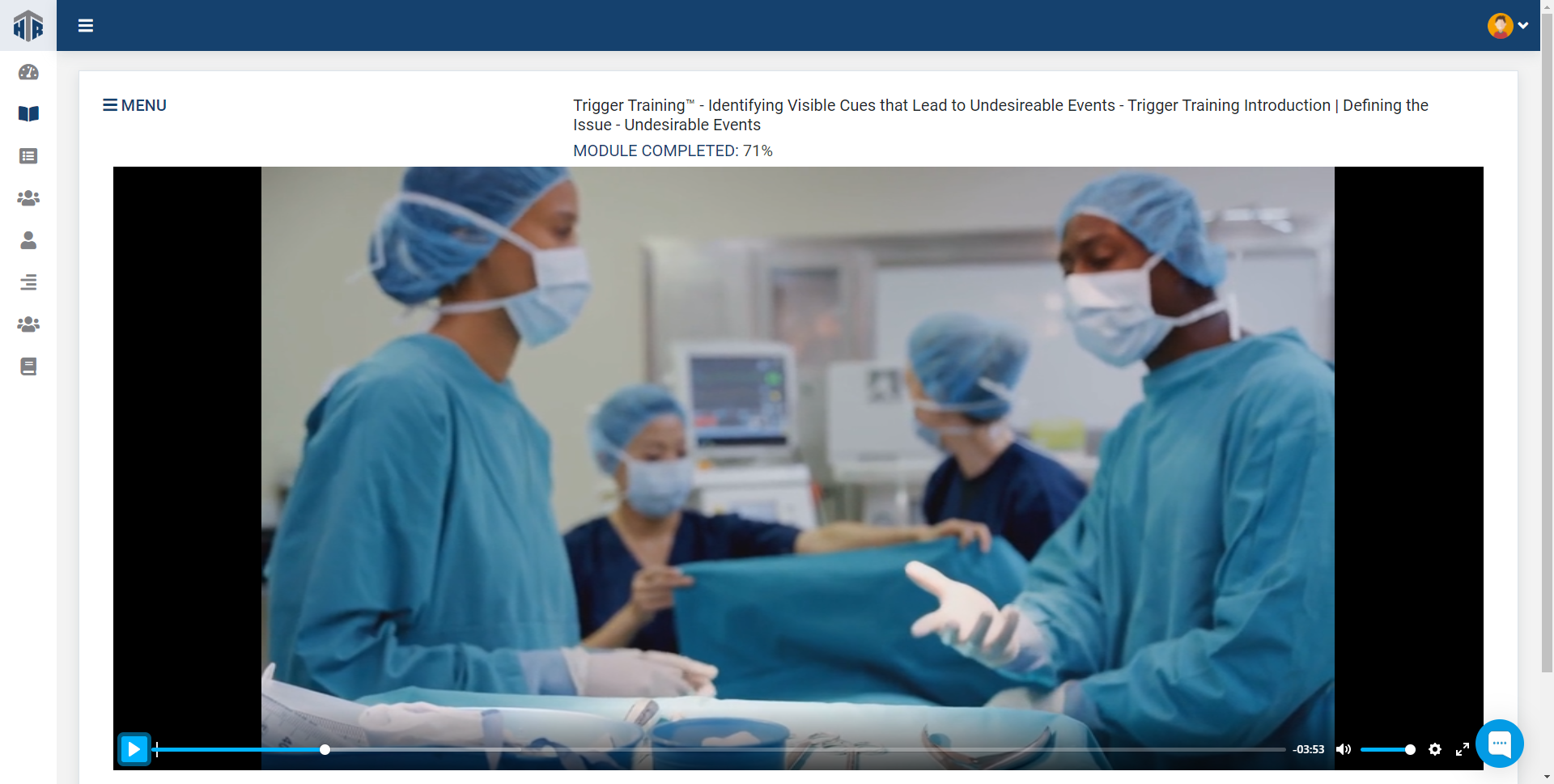Human and Organizational Performance Fundamentals
Human and Organizational Performance (HOP) Level One courses are the foundation blocks for the behaviors described and promoted in our introductory level HOP courses. The strategic approach for improving performance is to reduce human error and manage defenses so as to reduce undesirable events and/or mitigate their impact should they occur, to Fail Safe. In the past, HOP programs focused on error prevention through the reduction of individual errors, often by imposing rules and procedures to standardize behavior. HOP shifts this paradigm by recognizing that humans are fallible, and errors are inevitable, and therefore, emphasizes the importance of understanding how individuals and teams actually perform work in practice.
Starts at: $197 Per Seat
Discounts available based on volume
Human and Organizational Performance Fundamentals
HOP aims to improve performance, safety, and reliability by addressing the various factors that contribute to errors and undesirable events, such as workload, fatigue, stress, and other factors that may impact performance. HOP also emphasizes the importance of creating a Reliable and Just Culture and promoting continuous improvement by learning from both success as well as failure, rather than just focusing on error prevention. Ultimately, a reliable and just culture is committed to building a reputation for dependability and trustworthiness, while also prioritizing fairness, transparency, and accountability in all its operations. These HOP Level One courses introduce the student to fundamentals of HOP as well as principles and practices utilized by High Reliability Organizations.
Our Fundamentals Include the Following Courses:
The Introduction to Human and Organizational Performance (HOP) Fundamentals course provides participants with a comprehensive overview of the history of HOP and key principles and practices of HOP. Participants will gain a clear understanding of the importance of building a Just and Reliable Culture and its impact on safety outcomes. By the end of the course, participants will be equipped with foundational knowledge to identify and address factors that contribute to errors and undesirable events, key HOP principles and practices, characteristics of a Just and Reliable Culture and key attributes and principles of HOP integration to promote a culture of safety and resilience in complex operations.
Human and Organizational Performance (HOP) Principles is a course that focuses on understanding how worker behavior is influenced by their environment and how organizations can minimize undesirable events. It emphasizes the principles of High Reliability Organizations (HROs) and the application of error-prevention and detection tools and techniques. HOP recognizes that human error is a systemic issue and aims to manage it by building adaptive capacity and designing robust processes and systems. The course introduces the seven HOP principles, which include acknowledging human fallibility, recognizing the inherent value of individuals, and understanding that conditions that lead to unwanted consequences exist within the organization. By implementing HOP principles and proactive risk management strategies, organizations can achieve sustainable success and reduce the occurrence of unwanted events.
This course aims to provide students with a comprehensive understanding of human error and its implications in high-risk industries. By the end of the course, students will be able to distinguish between active and latent errors and understand how they contribute to human error. They will also learn about Frese's Law of Error Frequency and its significance in managing human error. Additionally, students will gain the ability to identify and differentiate the active and latent pathways to harm, along with their associated factors. The course emphasizes the importance of managing human error and highlights the need for organizations to take a proactive approach to mitigate the risk of error in order to ensure safety and minimize undesirable consequences.
This course focuses on understanding and managing error traps in the workplace to ensure safe and reliable operations. Students will learn to identify common error traps that can lead to errors and increase the likelihood of losing control. They will also gain insights into the factors that influence decision-making in stopping work in the presence of unsafe conditions or behavior. The course emphasizes the impact of error traps on pathways to harm and the importance of managing and mitigating them. Students will be equipped with error trap mitigation strategies and tools such as task planning, procedure use and adherence, and self-checking to minimize the occurrence of errors and maintain positive control of work processes.
This course is designed to provide participants with a comprehensive understanding of performance modes and the factors that contribute to errors in each mode. Participants will learn about the Knowledge-based, Rule-based, and Skill-based performance modes and their characteristics, error rates, and potential sources of errors. The course emphasizes the importance of error mitigation strategies to reduce error rates and improve performance in each mode. Participants will also learn about the role of HOP tools and techniques in managing human performance and promoting safety and reliability in complex systems.
This course provides a comprehensive understanding of the Defense-in-Depth Model known as the Controls Barriers and Safeguards (CBS) Strategy. Participants will learn how to apply the CBS Strategy to everyday life scenarios and work scenarios to protect assets. The course emphasizes the comparison of the CBS Strategy to organizational systems and processes to improve risk management and achieve Precision Execution™. Participants will gain practical knowledge and skills in identifying controls, barriers, and safeguards in various contexts and learn how to implement a robust CBS Strategy within their organizations to enhance safety and minimize the impact of events.
This course has been designed to provide the student with a high-level overview of system weaknesses and their impact on human and organizational performance, HOP. We will explore how system weaknesses manifest as deficiencies or vulnerabilities in an organization's processes, procedures, controls, and structures. These weaknesses can hinder productivity, compromise safety measures, and undermine overall operational effectiveness. By understanding the potential consequences of system weaknesses, participants will gain a sense of urgency and recognize the importance of proactively identifying and addressing them.
This course focuses on Risk Important Actions (RIAs) and their significance in managing risk in work activities. Participants will learn to identify and differentiate RIAs from Critical Steps in tasks involving risk. The course explores the impact of active and latent errors on asset harm and emphasizes the importance of error prevention tools and techniques. Through exercises and practical examples, participants will gain a deeper understanding of the relationship between RIAs and safety outcomes. The course concludes with actionable steps to improve risk management processes and mitigate the frequency and severity of undesirable events.
This course focuses on the importance of Critical Steps and Risk Management in work activities. Participants will learn to identify Critical Steps and Risk Important Actions (RIAs) and understand their significance in ensuring safety and preventing harm to assets. The course provides a simplified risk management approach and explores the concept of touchpoints in work processes. Through exercises and discussions, participants will gain a clear understanding of the distinction between Critical Steps and RIAs and learn practical strategies for incorporating them into daily work processes. The course concludes with actionable steps to enhance risk management and promote a proactive safety culture.
This course on HOP Tools offers students a comprehensive understanding of strategies, techniques, and approaches to enhance human performance and prevent errors in the workplace. Students will learn about the importance of HOP Tools in various roles within an organization, such as frontline workers, supervisors, managers, and knowledge workers. The course emphasizes the development of both mental and behavioral skills to improve task execution and create a culture of reliability and safety. By exploring the implementation and benefits of HOP Tools, students will gain practical knowledge to enhance performance, mitigate risks, and contribute to a safer work environment.
This HOP Fundamentals Level One (Core) Course Refresher and Final Exam is designed to reinforce and assess your understanding of the essential concepts covered in the HOP Fundamentals curriculum. The course covers a range of topics, including Introduction to HOP, HOP Principles, Human Error, Error Precursors and Traps, GEMS Model, Managing Risk with Defense-in-Depth, System Weaknesses, Risk Important Actions, Risk Management and Critical Steps, and Introduction to HOP Error Prevention Tools and Techniques. By reviewing and revisiting these subjects, you will solidify your knowledge and proficiency in the fundamentals of HOP, equipping you with the skills to enhance human performance and prevent consequential errors in the workplace. The final exam will test your comprehension of the course material, allowing you to demonstrate your understanding and apply it effectively in real-world scenarios.








Human and Organizational Performance Fundamentals Objectives
Note: Optional enhanced objectives can be customized to any desired focus area or audience for our training courses.
Analyze
Recognize
Identify
Define
Identify
Explain
Describe
Explain
Meet The Author
Professional Experience
2020-Present: High Reliability Training LLC, Business Partner / Chief Operations Officer
Ron is an author and experienced practitioner in Human & Organizational Performance (HOP) and High Reliability Organization (HRO) that provides support for a variety of high-risk industries that includes: analysis of operational data to help front-line workers, line managers, and leaders of high-risk operations protect their assets using proven risk management methods, and error-prevention and mitigation strategies. Ron also develops and delivers:
- Co-authored Critical Steps: Managing What Must Go Right in High-Risk Operations
- Customized HOP and HRO workshops, webinars, and classroom training
- Video-based HOP and HRO training
- Observation and feedback training and mentoring
- Leadership development, training and mentoring
- Asset protection and risk management strategies
- Accident / Incident investigation training and mentoring
- Keynote speeches
